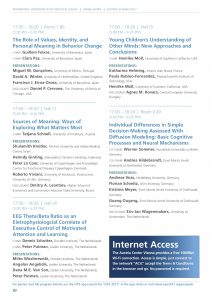There is a growing body of evidence suggesting that mental health activism has had an impact on policy and care system changes as well as in the creation of peer support networks. Additionally, some researchers have explored the effect that mental health activism and peer support has on the identity of its participants. In this presentation we will discuss the implications of mental health activism for the scientific research on identity transformation discussing the methodological implications that the exploration of these variables has. We will argue that the use of source-embedded mixed methodologies is suited to the participatory nature of these groups also enabling us to depict the common rituals and processes of group identification, enhancement, fusion or differentiation in diverse contexts. The study of identity transformation in a context where resilience to distress is mixed with citizen participation can teach us the way to explore new ways of recovery.


